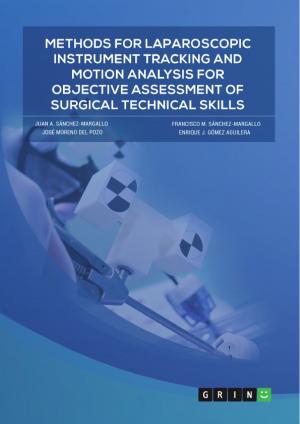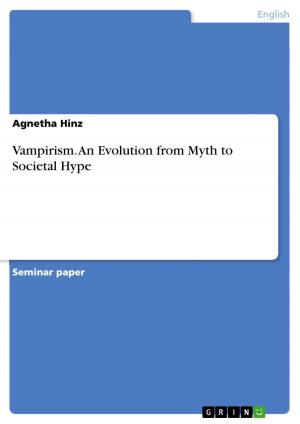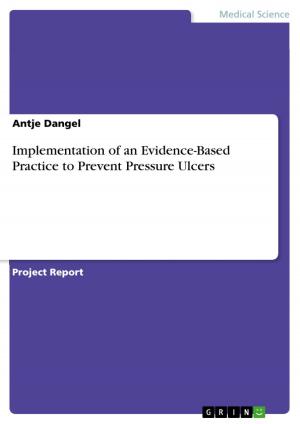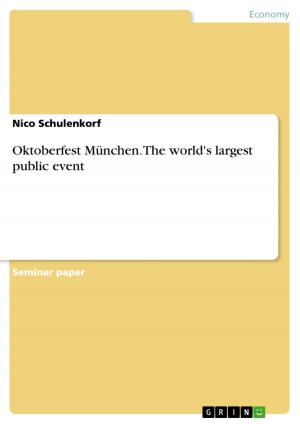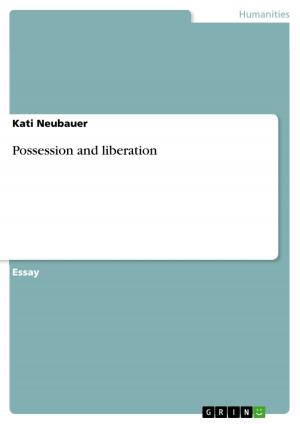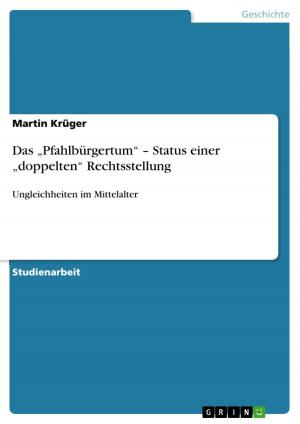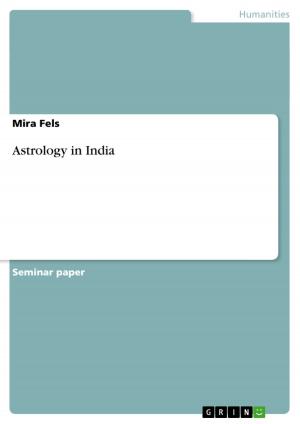St. Paul's Cathedral from past to present
Nonfiction, Reference & Language, Study Aids, ESL, Foreign Languages| Author: | Silke Lübbert | ISBN: | 9783638690249 |
| Publisher: | GRIN Publishing | Publication: | May 21, 2007 |
| Imprint: | GRIN Publishing | Language: | English |
| Author: | Silke Lübbert |
| ISBN: | 9783638690249 |
| Publisher: | GRIN Publishing |
| Publication: | May 21, 2007 |
| Imprint: | GRIN Publishing |
| Language: | English |
Seminar paper from the year 2004 in the subject English Language and Literature Studies - Culture and Applied Geography, grade: 2,7, University of Paderborn (Institut für Anglistik), course: London the urban experience, 9 entries in the bibliography, language: English, abstract: When most people think of St. Paul's Cathedral in London the image of Christopher Wren's magnificent classical church rises in their minds, but there was a cathedral dedicated to St. Paul long before the construction of Wren's cathedral. This paper is going to show how St. Paul's Cathedral became what it is today and what a church can be apart from a place for sermons. Cathedrals have always played more than one role in the communities they serve. Their central purpose is to bring people closer to God, but over the centuries they have served as a focal point for trade, as fortresses and sanctuaries in times of war, and as vast status symbols - reflections of wealth and power of the region in which they stand. These functions take on an additional significance for St Paul's, the cathedral of the capital city and also of the nation. Today's Church belongs to the people of the nation. For example, every citizen can be married or have a funeral service in his or her parish church; priests can marry couples without the presence of a civil official; and the General Synod, the Church of England's governing body, is the only organisation outside Parliament that has the power to legislate. Cathedrals are perhaps the ultimate reflection of this inclusiveness. Unlike parish churches, which exist to minister to the people of the local area in which they stand, they are a route to God for the larger community - a place of celebration and mourning where feelings can be shared and the sheer scale and beauty of the architecture, services and music allows visitors to experience the serenity and spirituality that are an essential counterpoint to the bustle of everyday life.
Seminar paper from the year 2004 in the subject English Language and Literature Studies - Culture and Applied Geography, grade: 2,7, University of Paderborn (Institut für Anglistik), course: London the urban experience, 9 entries in the bibliography, language: English, abstract: When most people think of St. Paul's Cathedral in London the image of Christopher Wren's magnificent classical church rises in their minds, but there was a cathedral dedicated to St. Paul long before the construction of Wren's cathedral. This paper is going to show how St. Paul's Cathedral became what it is today and what a church can be apart from a place for sermons. Cathedrals have always played more than one role in the communities they serve. Their central purpose is to bring people closer to God, but over the centuries they have served as a focal point for trade, as fortresses and sanctuaries in times of war, and as vast status symbols - reflections of wealth and power of the region in which they stand. These functions take on an additional significance for St Paul's, the cathedral of the capital city and also of the nation. Today's Church belongs to the people of the nation. For example, every citizen can be married or have a funeral service in his or her parish church; priests can marry couples without the presence of a civil official; and the General Synod, the Church of England's governing body, is the only organisation outside Parliament that has the power to legislate. Cathedrals are perhaps the ultimate reflection of this inclusiveness. Unlike parish churches, which exist to minister to the people of the local area in which they stand, they are a route to God for the larger community - a place of celebration and mourning where feelings can be shared and the sheer scale and beauty of the architecture, services and music allows visitors to experience the serenity and spirituality that are an essential counterpoint to the bustle of everyday life.


